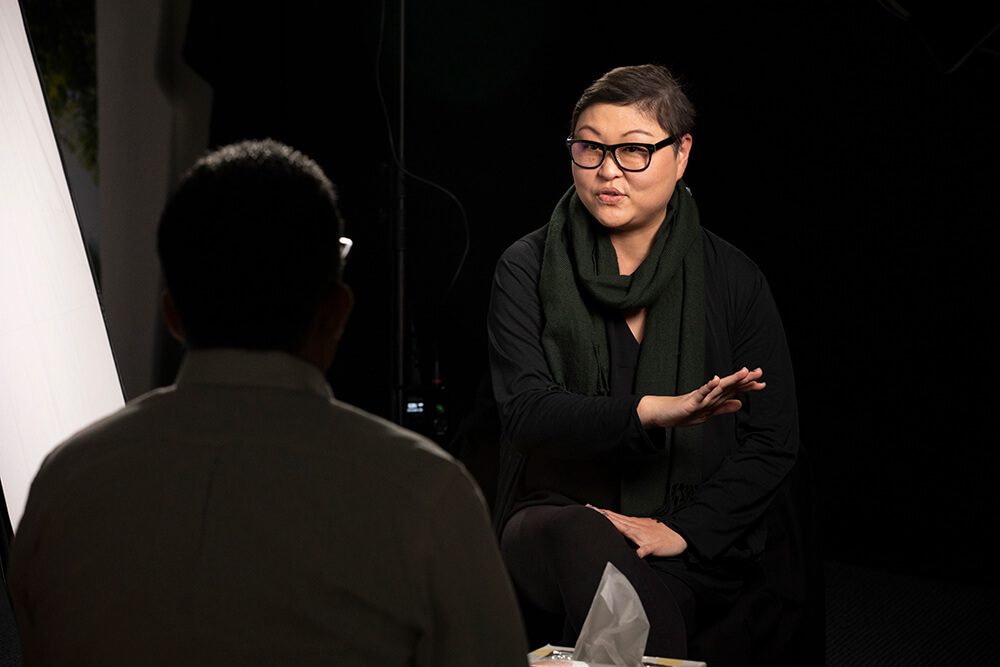Yuying Tsong
Associate vice president for student successAnti-racism is:“Means to heal from current and historical racial-based trauma and to engage in actions to liberate everyone from racism, including racism that we have internalized and racism at the interpersonal, systematic, and structural levels.”
My Journey Toward Anti-Racism Started With Anti-Sexism.
Growing up in Taiwan, a monoracial society, sexism was the first type of oppression I experienced. I am forever grateful and appreciative of my parents having “the talk” with me very early on about people who think less of women and girls.
The clear message that “they” are the ones who are wrong has been a significant protective factor against internalized misogyny.
Another critical component of my anti-racism journey is my ethnic and linguistic privilege growing up in Taiwan with ethnically Chinese parents. My parents were part of the vast influx of two million ethnically Chinese people migrating to Taiwan at the end of World War II.
As a young child, I was raised with the ethnic pride of being Chinese and the linguistic privileges associated with it at school. It was also the beginning of my critical reflection on systematic oppression - the fact that my friends who spoke Taiwanese (instead of Mandarin) at school would be fined a dollar just didn’t sit right. I could not name “it” at the time (me having the colonizing linguistic privileges).

What was clear to me was that I didn’t have to worry about it because I speak Mandarin at home. It also gave me more opportunities to be selected for speech competitions because of my lack of a Taiwanese accent. The feelings of being privileged felt good, lucky, awful and unfair simultaneously.
I experienced subtle and not-so-subtle anti-Asian racism and xenophobia when I came to the U.S. for my graduate education in psychology. Learning about histories and scholarships on racism and various forms of oppression in the U.S. and globally helps me describe my experiences of being oppressed and the privileged.
It became apparent to me very quickly that equity, liberation and fighting against all forms of oppression would be the focus of my career. The current national climate for racial justice is an awakening experience. While I mourn the pain, loss and trauma, I am also hopeful to see the awakening and the rise of activism and social change in various forms.
Social change can happen anywhere and everywhere - intrapersonally within ourselves to challenge our own internalized oppression; interpersonally in our relationships with each other; systematically in policy changes, and structurally throughout the entire system.
When we use a critical consciousness and liberation lens to critically reflect on our experiences and engage in actions that change our behaviors and impacts, we can be anti-racist/anti-oppression parents, anti-racist/anti-oppression teachers, and anti-racist/anti-oppression professionals.
I am hopeful.
Yuying Tsong is the associate vice president for student success at Cal State Fullerton. They are a psychologist and professor in the department of human services in the College of Health and Human Development. Tsong has also served as director of the University Honors Program since 2021.